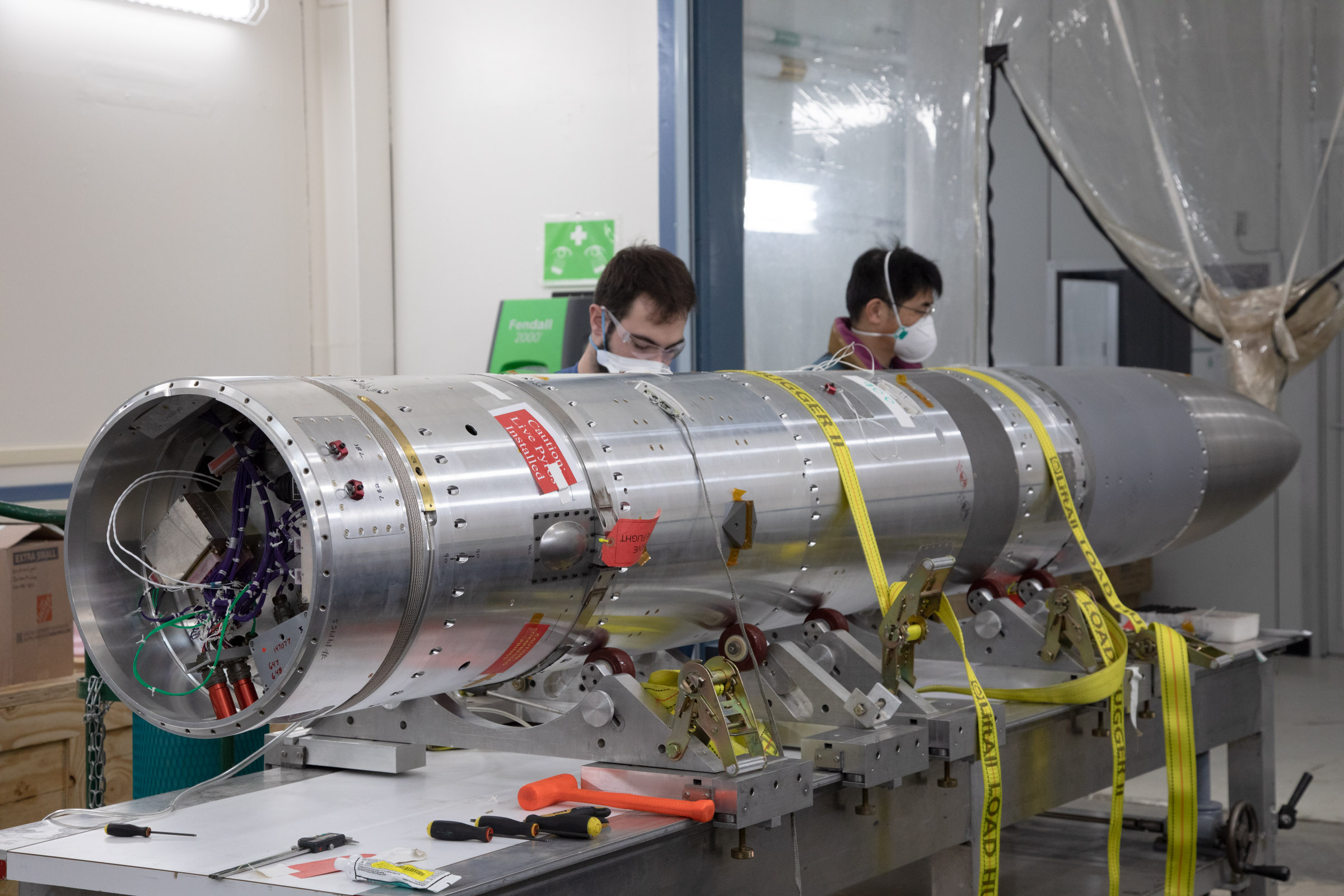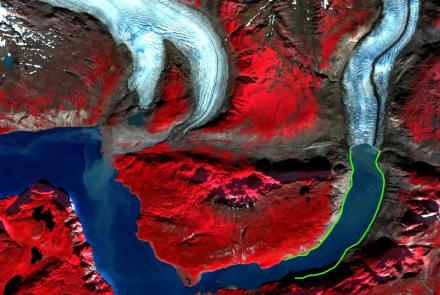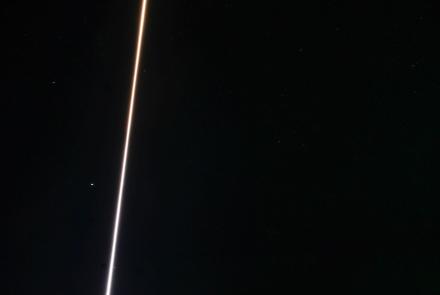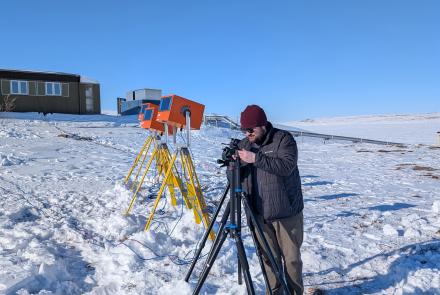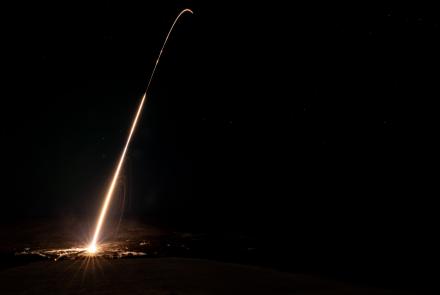NASA is set to launch a rocket from Poker Flat Research Range north of Fairbanks as early as Thursday, Feb. 24, in pursuit of greater understanding about a form of the northern lights called pulsating aurora.
Launch of the two-stage Black Brant IX sounding rocket will be the first at the range since January 2020. The launch window closes March 10.
Scientists also want to learn about flickering that occurs within the pulsating aurora. Pulsating auroras turn on and off about every two to 20 seconds, but the flickering within them occurs much faster.
The Loss through Auroral Microburst Pulsations, or LAMP, experiment seeks to determine whether the pulsating aurora is connected to another phenomenon called microbursts, higher-energy electrons from the Earth’s magnetosphere driven toward Earth in bursts that last about one-tenth of a second. That is faster than the pulsating aurora but similar to the flickering inside the pulsations.
Pulsating aurora and microbursts are linked to chorus waves in Earth’s magnetosphere. These electromagnetic waves transfer energy to low-energy electrons trapped in the magnetosphere surrounding Earth and accelerate them toward the planet along magnetic field lines.
Understanding if and when the high-energy microbursts and low-energy auroral electrons occur together will help scientists learn how space weather changes atmospheric chemistry.
“One of the great things with LAMP is the number of different types of instruments and platforms that will look at the same aurora simultaneously,” said Alexa Halford, space physics researcher at NASA’s Goddard Space Flight Center and the experiment’s lead investigator.
“The Venetie and Fort Yukon communities are helping us by providing places where we can set up our ground all-sky cameras,” she said. “And citizen scientists can collect data and images of the aurora during our rocket launch. So while the rocket will provide data along its path, data from these other groups will help provide the context of the larger picture.”
A pulsating aurora looks patchy and occurs within minutes or sometimes hours after the conclusion of a discrete aurora, the familiar curtain-like type of aurora. Focus on one patch of pulsating aurora and wait: It will disappear but soon reappear.
The rocket will carry numerous instruments into a pulsating aurora to examine electrons, plasma, magnetic fields and visible components. Ground-based instruments include all-sky cameras, high frame-rate cameras and magnetometers.
Poker Flat Research Range Director Kathe Rich said the range has been busy with personnel preparing for the launch.
“So much has to happen to prepare for a launch,” she said. “We’ll be ready for this major NASA experiment to learn more about the pulsating aurora.”
The University of Alaska Fairbanks Geophysical Institute owns Poker Flat, located at Mile 30 Steese Highway, and operates it under a contract with NASA’s Wallops Flight Facility, which is part of the Goddard Space Flight Center.
The LAMP launch and research team consists of personnel from Goddard Space Flight Center; Wallops Flight Facility; University of Iowa; U.S. Air Force Academy; University of Electro-Communications, Tokyo; University of New Hampshire; Dartmouth College; Tohoku University; Kyutech Institute of Technology; Nagoya University and the Japan Aerospace Exploration Agency.




